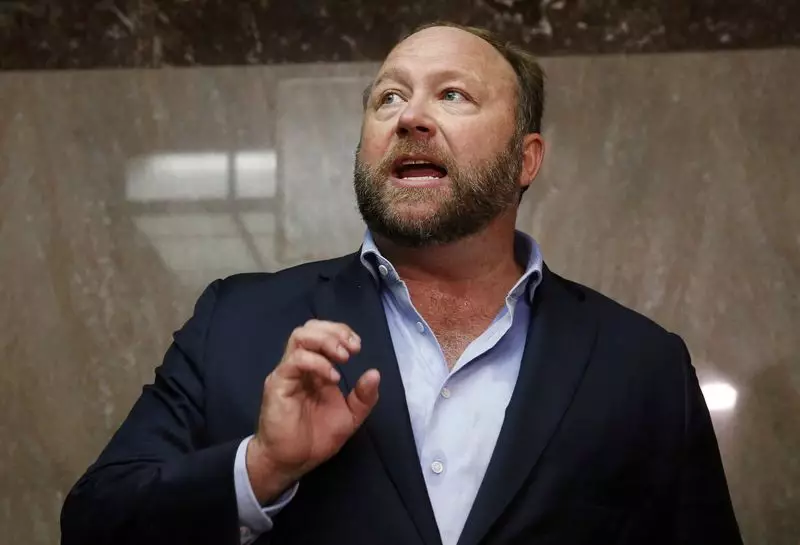The recent decision by U.S. Bankruptcy Judge Christopher Lopez to block the Onion’s acquisition of Alex Jones’ Infowars website has sparked discussions about the complexities of bankruptcy proceedings, the ethical dilemmas of media ownership, and the lingering repercussions of defamation claims surrounding Jones’ controversial history. In a two-day hearing in Houston, Judge Lopez examined the allegations of collusion and procedural shortcomings that marred the auction process for Infowars, ultimately determining that the bids submitted were inadequate in light of Jones’ substantial financial liabilities.
Infowars, a platform known for promoting conspiracy theories and misinformation, has become synonymous with Alex Jones. Following his declarations that the Sandy Hook massacre was a staged event, Jones has faced legal repercussions that culminated in over $1.3 billion in judgments awarded to the families of victims. His bankruptcy declaration aimed to navigate these debts, leading to the auction of his assets, including Infowars. The Onion, a satirical news site, emerged as the winning bidder in November, proposing to transform the controversial website from a hub of disinformation into a comedic platform.
However, the auction was not without its challenges. First American United Companies, an entity associated with Jones, contested the Onion’s status as the winning bidder, asserting that the process was compromised, alleging that the Onion gained an unfair advantage due to the familial relationships with those who had sued Jones. This situation reveals the complicated interplay of ethics and financial transactions in a landscape altered by profound mistrust and legal liability.
Judge Lopez’s ruling highlighted significant flaws in the way the bankruptcy auction was administered. He indicated that the auction, while conducted honestly, failed to maximize the potential financial recovery for creditors, particularly the Sandy Hook families. The judge’s admission of a “good-faith error” committed by the court-appointed trustee raises critical questions about the responsibilities of such trustees during auctions and the need for thorough oversight to ensure that maximized financial outcomes are pursued.
In his statement, Lopez suggested that reopening the bidding process could have led to significant funds being generated for creditors, indicating a lack of thorough inquiry into the bids received. This aspect underscores a broader critique of the handling of bankruptcy proceedings in cases linked to high-profile and contentious figures, where the stakes are not merely financial but deeply rooted in societal impacts.
The reactions following the ruling have been multifaceted. While the Onion expressed disappointment, their intentions to revamp Infowars as a source of satire align with a progressive vision for the internet—one where disinformation is replaced with informed humor. Conversely, Jones’ affiliates celebrated the ruling as a victory over what they characterized as biased perceptions and unjust procedural violations.
Attorney Chris Mattei, representing the Sandy Hook families, emphasized the resilience and determination of his clients to ensure Jones is held accountable, regardless of the sale’s outcome. This ongoing legal battle serves as a testament to the families’ struggle for justice, further solidifying the tension between victims of misinformation and the individuals perpetuating it.
Meanwhile, the ruling raises pertinent questions concerning free speech, the role of satire in addressing serious societal issues, and the ethical implications of ownership over notorious platforms. The Onion’s proposal to infuse comedic relief into the controversial Infowars could represent a potent form of critique against the fabrications that have been propagated in the past.
As the case surrounding Infowars evolves, it intersects multiple domains: legal, ethical, and societal. The complicated narrative involving Alex Jones encapsulates not only individual accountability but also highlights the ramifications of platform ownership in an era where misinformation can have devastating effects. As Jones’ bankruptcy case continues to unfold, all eyes will be on how the legal mechanisms will respond to the urgent need for accountability, alongside the potential for satire to reclaim narratives from harmful discourse. The future of Infowars and its legacy remains uncertain, but the implications of the court’s decision will ripple through discussions of media responsibility and redemption in the information age.

